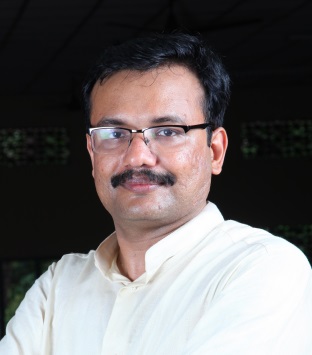
V V Binoy is an Assistant Professor at the National Institute of Advanced Studies (NIAS), Bangalore. His research focuses on cultural variation in human cognition (environmental decision-making and autobiographical memory) and the determinants of social decision making and coping style in fishes. Binoy is also involved in identifying effective strategies for communicating science and technology in a multicultural society. Binoy has been a recipient of the ‘Cognitive Science Research Initiative Postdoctoral Fellowship’ and ‘Young Scientist’ award from the Department of Science and Technology, Government of India.
Selected Publications
Menon S, Binoy V V and Nagaraj N (in press) Self, Culture and Consciousness: Interdisciplinary Convergences on Knowing and Being. Springer-Nature
Bagla P and Binoy V V (2017) Bridging Communication Gap in Science and Technology: Lessons from India. Springer, Singapore
Binoy V V, Kasturirangan R and Sinha A (2015) Sensory cues employed for the acquisition of familiarity-dependent recognition of a shoal of conspecifics by climbing perch (Anabas testudineus Bloch). Journal of Biosciences 40: 225-232
RadhakrishnaS, BinoyV V and Kurup A (2014). The culture of environmental education: Insights from a citizen science experiment in India. Current Science 107: 176-178
Selected On-Going Projects
Understanding the role of ‘student networks’ in creating awareness about environment, water, sanitation and hygiene in rural and socio-economically marginalized areas National Council for Science and Technology Communication (NCSTC), Government of India. July 2014 – August 2016; Grant: INR 13,25,280 (PI)
Intra-and inter-population variation in behavioural plasticity in a fish, the climbing perch Anabas testudineus: Role of behavioural syndromes and brain organisation”. Funded by: Department of Science and Technology, Government of India. July 2013 – November 2016; Grant: INR 23,80,000 (PI)
Interdisciplinary forays into human-environment interactions. Science Engineering Research Board (SERB) Government of India. May 2017 – May 2020; Grant: INR 33,00,000 (Co-PI)